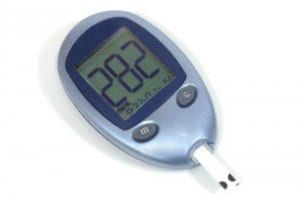 Warning Signs Of High Blood Sugars: Controlling high blood sugar is vital for maintaining a diabetic’s lifestyle. This process may be difficult to achieve. When an individual is first introduced that they have a problem, they are then given medication and a basic tutorial on what do to. Nevertheless, maintaining a reasonable range in blood sugar levels can be a tricky process. Everyone experiencing this kind of disease should be aware of warning signs when their levels are extremely high as well as what to do if this should happen. Every body type is different. Safe blood sugar levels in one individual may be better or worse in another. This will need to be determined by the health care provider. Every time an individual tests their blood sugar levels, it is required to be within a certain range. There are definite techniques that a person can use to know if their levels are too high and methods to rectify this situation.
Warning Signs Of High Blood Sugars: Controlling high blood sugar is vital for maintaining a diabetic’s lifestyle. This process may be difficult to achieve. When an individual is first introduced that they have a problem, they are then given medication and a basic tutorial on what do to. Nevertheless, maintaining a reasonable range in blood sugar levels can be a tricky process. Everyone experiencing this kind of disease should be aware of warning signs when their levels are extremely high as well as what to do if this should happen. Every body type is different. Safe blood sugar levels in one individual may be better or worse in another. This will need to be determined by the health care provider. Every time an individual tests their blood sugar levels, it is required to be within a certain range. There are definite techniques that a person can use to know if their levels are too high and methods to rectify this situation.
Warning Signs
The signs for an individual’s high blood sugar are rather simple to spot. Depending on how high the levels are is determined on what type of treatment is vital. There are various warning that may be linked to other conditions. When a symptom is present, always check the blood sugar count with a tester before panic sets in. The warning signs are as follows:
- Unnatural fatigue. If an individual is tired all the time or feeling lethargic, testing the blood sugar levels is a must.
- Feet. The feet of a diabetic person can be a sign of a problem. This part of the body swells, can produce cracked or dry skin or discoloration of the toenails. Massive itching attacks can also be present with the dry skin.
- Desire of vast amounts of liquid. This sign is a fantastic technique to use if the levels are extremely high. When this is present, a person will not be able to get enough liquids to satisfy their thirst.
- Urination. When the blood sugar rises, the need for more liquid is present. This may be the reason why a person uses the bathroom more than normal. However, the necessity to urinate frequently may also be a warning sign.
- Hunger. If an individual feels unnaturally hungry, then a blood sugar test is in order. This is especially true if the person has just consumed a large meal and yet they feel like they have not eaten in days.
- Unable to see clearly. Sight is affected by different aspects of diabetes. If the levels are too high, a person may experience blurry or unstable vision. This could cause falling over, dizziness or clumsiness.
What To Do
Experiencing sudden rises in blood sugar levels can cause a panic. This is especially true for an individual that has never been through it before. It is vital to relax and follow the directed steps.
- Test the blood sugar levels. This step is important to know exactly how high it actually is as well as determining if it is another condition entirely.
- Verify that the prescribed medication has been taken. An individual may have missed their medicine. If this is the case, take the dose that was required. Wait for about 30 minutes then retest.
- Drink liquids. This will assist in replacing liquids in the body that are missing. Water is best for this step.
It is vital to keep calm during these moments. After an individual has tested their levels the second time and are still very high, seek a medical professional immediately. If a person is feeling tired and sleepy when they are experiencing this episode, it is vital to stay awake. Contact a friend or neighbor if you feel that you are losing consciousness. They can call 911 if the individual becomes unstable.